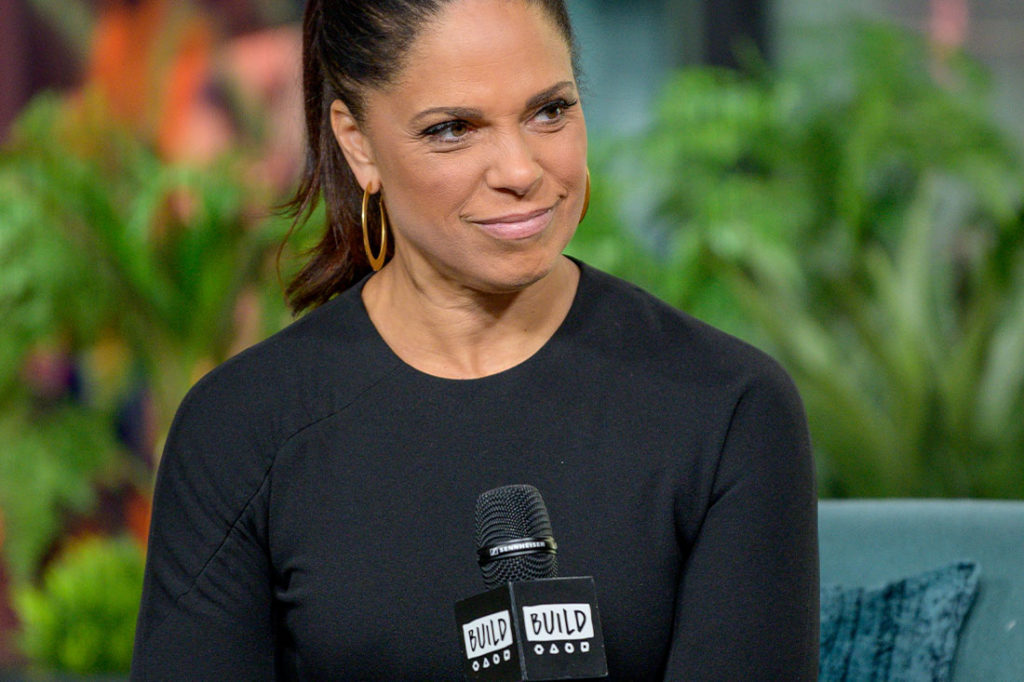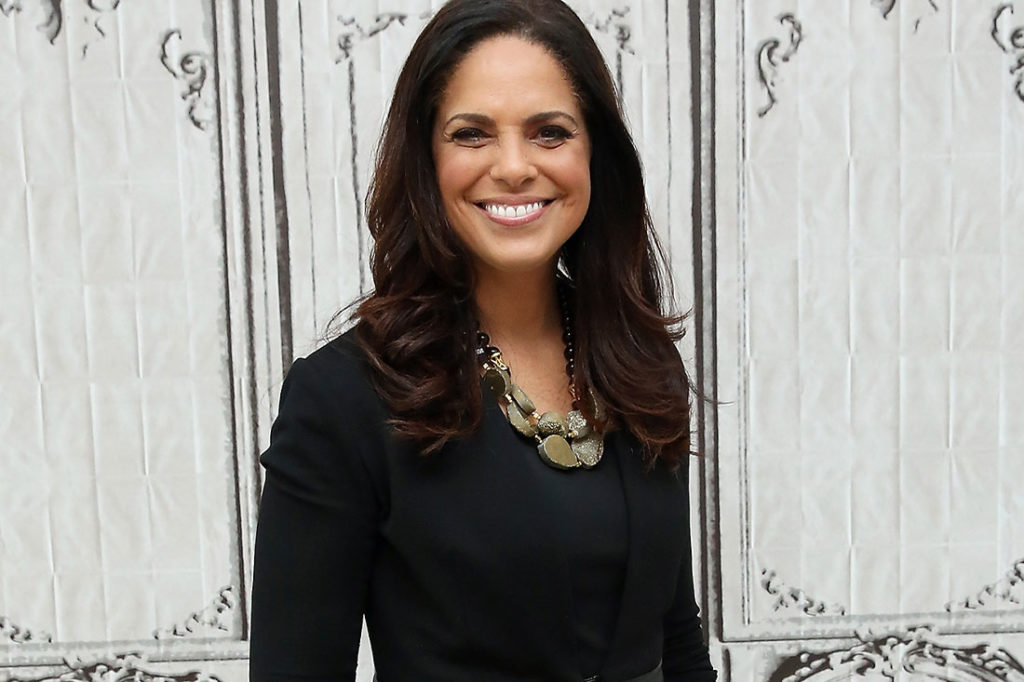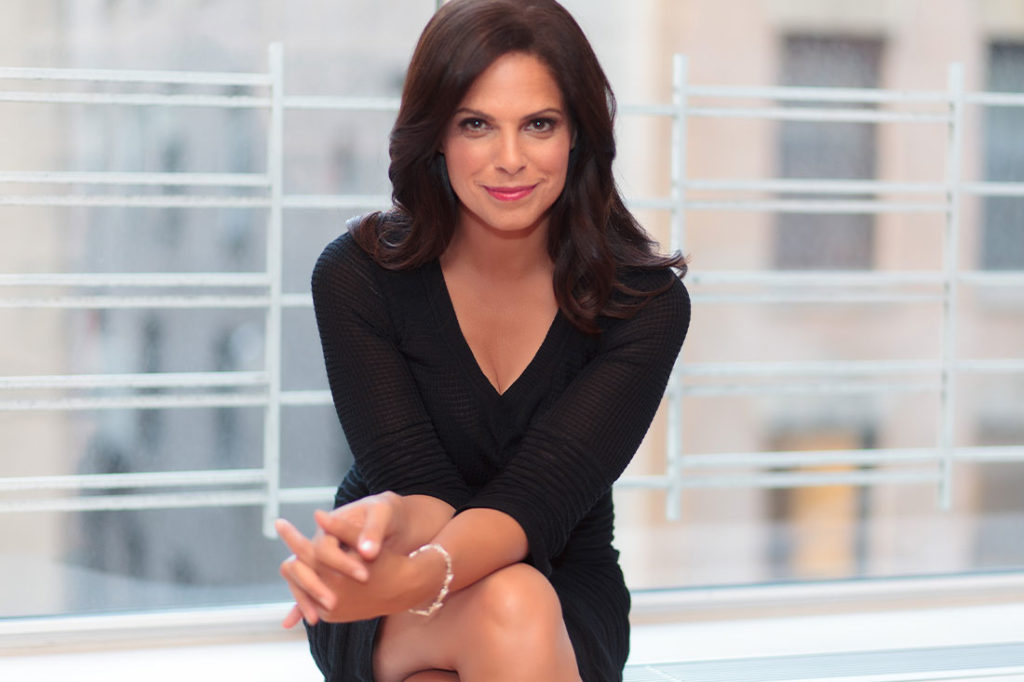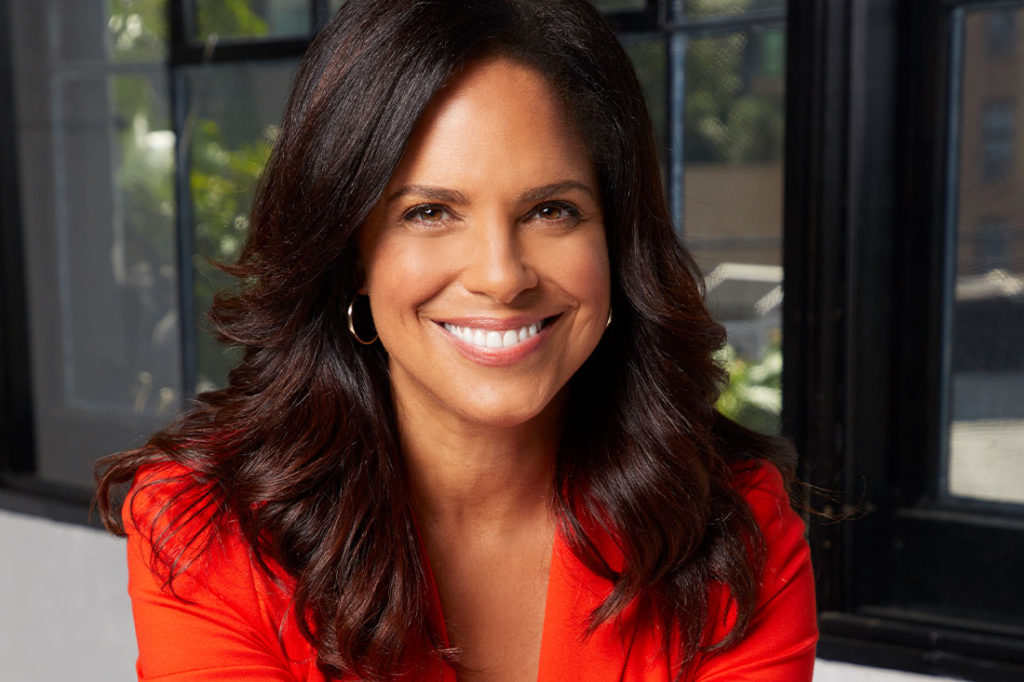Editor’s Note: The SUCCESS Interview is a new feature testing the foundational principles of this 124-year-old personal and professional development magazine against modern realities. Editor-in-Chief Josh Ellis will sit down with newsmakers, opinion-shapers and undisputed achievers to find out how we can all get ahead in a world changing faster than ever.
In this first edition, we chat with longtime broadcast journalist Soledad O’Brien about whether citizens have a duty to inform themselves, whether it’s possible to do so while protecting one’s mental health, and the challenge of social media literacy. O’Brien, 54, hosts the podcast Very Opinionated with Soledad O’Brien and the Hearst Network series Matter of Fact. A veteran of NBC, CNBC and CNN, she now heads her own company, Soledad O’Brien Productions. In recent years, O’Brien has become more vocal on social media, calling out hypocrisy among public figures and shoddy work by fellow journalists.
This Q&A has been edited for clarity and space considerations. To view the interview in its entirety, join our social network, Achievers, at Achievers.SUCCESS.com or download the app SUCCESS Achievers Community.
Josh Ellis: Soledad, thanks for sitting down with SUCCESS. I see that you’ve been stirring it up on Twitter. Why?
Soledad O’Brien: I wouldn’t call it stirring it up. I do a lot of calling people out for things that I think are hypocritical and just poor journalism, frequently, but often I think I also use my Twitter platform to say this is a great thread, this is a great article, follow this person, this is a really interesting deep dive into the theory behind vaccines.
I try to use my platform to just bring—you know, if you were my friend in my living room, like that would be the conversation we would be having. I would tell it to you no holds barred.
JE: Is your mood affected by that conversation, or the news of the day?
SO: Yes, but I think that just would be me no matter what. I mean, how can you not? You hear so many of these stories—oh my goodness. The woman who was burying her husband who was a Capitol police officer, and her daughter who probably was 7 years old was in her lap and trying to wipe her mom’s tears away in the church services. Yeah. I mean like how does that not break your heart? How do you not think about the loss for this family?
I think I am a very empathetic person, and so even as a reporter when I would go cover stories, it stayed with me all the time. Sometimes it made it really hard to cover some of those stories.

JE: Does that make it easier to do your job, or harder?
SO: I think it probably makes you better at your job. I can’t imagine not caring, like being able to happily go to sleep after spending the day with people who are struggling or being in the middle of an important story. I think part of what makes me a good reporter is that I do feel these stories, and I care about them, and I push for them, and I want to get them right and I’m interested in elevating certain voices that I think get left out a lot. So, that’s probably a plus.
What I think can be the minus is, of course, it’s hard. It sometimes develops a little like a [post-traumatic stress disorder]. Certainly after covering Hurricane Katrina or the tsunami in South Asia, you just see so much death and so many dead bodies. It’s hard to process that over time, and so I do think you develop kind of an anxiety around that.
JE: When I was a kid, we read this book called The Giver, by Lois Lowry. It’s set in this futuristic dystopian society where there is one person whose job it is to take on all the pain of the world so no one else has to. Sometimes I think of that when following the news, which of course has been particularly fraught for a while, whether we have to choose between happiness—maybe ignorance is bliss—and following these stories and contributing to societal conversations.
SO: It’s a great question, and I would say I don’t think everybody does. Sometimes my husband is very blissfully unaware of some details of things. I think he informs himself on certain things and then chooses other things not to, for sure.
I don’t think every single person needs to wake up, as I do, hop on Twitter and start reading through The Wall Street Journal and The New York Times and the New York Post and the New York Daily News and see what’s happening in the world. It’s my business, so I sort of have to, but I don’t know that it’s necessarily helpful and informative.
It certainly, especially now, can be very undermining. It can be upsetting.
JE: At the same time, we all were brought up with this notion of being a good citizen. How can you be a good citizen if you’re not informed? I struggle with this binary.
SO: Yeah, but today there’s a firehose of news, right? Do you really need to know about Major Biden, the White House dog who needs to go to dog rehab for biting? I’m pretty sure you can go through the rest of this year not getting an update on that one. There’s a whole bunch of stuff that you actually don’t need to know.
I remember the first time I ever left a big network job, and it was the first time that I wasn’t up on every single story and realizing that was OK; I didn’t have to know every detail of every story because I wasn’t anchoring. I was OK to just read what was interesting to me at the moment. I think a little editing is always a good thing.
JE: So how does one start to edit? The social networks, where most people get their news these days, are built to be addictive.
SO: I think there’s easy editing, actually. One is just time. For example, when I get up in the morning, and I hop onto Twitter first thing, I basically give myself 45 minutes to read it. What happened? Was there an earthquake somewhere? What’s the big story? What’s everybody talking about? And then I’m done; I start reading the stuff that actually is going to matter for the shows I’m working on, the productions, etc.
The challenge comes in when you read the stuff that’s a mess—the gossip. That’s a waste of your time. I think doomscrolling is a waste of time. It literally just makes you feel bad and doesn’t add value.
When you’re self-employed, your time is your money, and so you just don’t have four hours to be doomscrolling. Are you reading through all the comments? Because by the time you get to comment No. 6, you’re on Bob127943, right? Bob doesn’t exist. He is a bot. So now you’re actually taking information from bots. So, stop that. That’s a complete and utter waste of your time.

JE: How do we get the country to a place of greater social media literacy?
SO: Oh, gosh. I don’t know the answer to that, and I think we’ve sort of primed the pump for a lot of garbage. I think one of the challenges that news organization have is they are very clickbait-y. All the headlines—they know better. They’re The New York Times. They’re The Wall Street Journal. They’re The Washington Post. But still they’re doing the same clickbait stuff that everyone else is doing on social media, and it’s very disappointing.
So I actually do not know the answer to that. I do not know how you fix that. I do not know.
JE: It’s almost as if the only way it happens—and I hate to say it because I have parents and grandparents who I love—but just over time, the generations that didn’t grow up with the internet or come of age with the internet will age out of the population.
SO: Oh, I don’t know. I look at my kids’ use of the internet, and not too long ago TikTok was doing a thing about Helen Keller; there was a whole rumor that Helen Keller was not real. Truly. Google it. I mean, it’s insane, but people were genuinely saying it. In fact, my daughters were asking me. ‘So, Mom, was Helen Keller real?’ Because they couldn’t really tell by the conversations that were happening on TikTok.
There’s just so much disinformation that I think it’s really hard for perfectly well-educated people who just don’t know to be kind of sucked in by something if it seems like it makes sense.
JE: Some of the team I work with know that I’m on Twitter, and that’s my preferred social media site. They’re really trying to convince me to move over to Instagram.
SO: Oh, gosh. I love Instagram. I think Instagram is much more positive. Instagram doesn’t have a lot of debate back and forth. I think Twitter is a little meaner. At the end of the night, I look at Instagram. I like looking at horse pictures. I like looking at stories. Just sort of good storytelling exists on Instagram in a way that it doesn’t on Twitter. Instagram is “here’s a lovely picture my grandad took; let me tell you the story of my grandad.” It has a different tone.

JE: People use Instagram as a marketing vehicle, too, of course. I just wonder if I wouldn’t be better off without all of it. That’s a principle for a lot of people in this genre where SUCCESS resides, personal development, including some past publishers of this magazine. The president of our company right now says that avoiding the news is his superpower. That’s a bridge that I have never been able to cross. I wonder how you think you would do?
SO: Just not being in the middle of what’s happening in the news would be bizarre for me. I would say, ‘Welcome to Matter of Fact, here’s pictures of my puppy. I have nothing to tell you.’ So I think I’m a bad example, but I do understand when people say, ‘I know myself well enough to remove those things that are a distraction and don’t add value.’
For me, one of the things when I started working as an entrepreneur was what do I need? I need to work out every day. I need to have a clear desk, a space where I work. Here are the things I’m going to require to make sure I can get my work done. I think figuring out what works for you is such an important piece of figuring out how to become a successful entrepreneur, whether it’s your social media or anything: your sleep schedule, who you need to be around, what kind of environment you create in the office, right?
All of those things, when you’re running it, you get to decide and say this is good and I can flourish in this, or this is bad and I cannot flourish in this.
JE: It’s funny to end a conversation about being aware of what is happening in the rest of the world with an examination of self-awareness. But what have you learned about yourself since you became an entrepreneur?
SO: It’s very interesting to figure out that you have skills that are different than the ones you thought you had. I knew I was a good reporter. But I can negotiate deals. I can structure a deal, and it’s really exciting to be able to say, Wow, there’s this thing that I’m good at that I’ve been able to figure out, and there’s stuff that I’m not good at that I have to hire people to really do well.
That’s exciting for me, and I don’t think I would have had that opportunity if I had stayed in a big corporate environment. I would have kept doing the thing I’m good at, which is in this category of anchoring and reporting and documentaries and being in the field, or at a desk.
That’s all very good and interesting, but not the thing that scares you or challenges you, or makes you say ‘Oh my God, can I actually do that?’
This article originally appeared in the July/August 2021 issue of SUCCESS magazine.
Feature image courtesy of Soledad O’Brien
Photo by © Roy Rochlin/Getty Images, ©Monica Schipper/Getty Images and ©Fran Roberts










